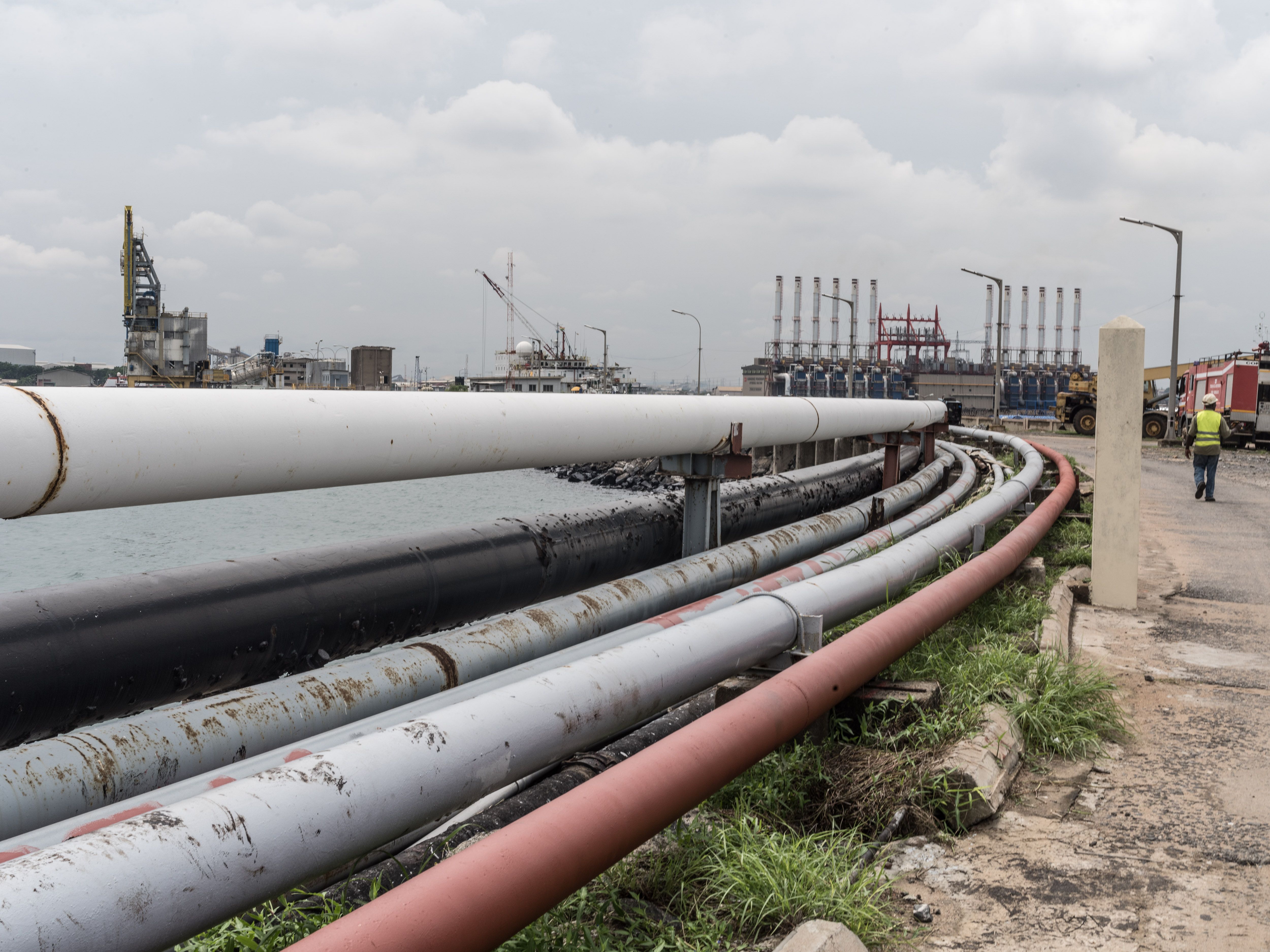Switzerland – the commodities hub
 ©
Carl De Keyzer/Magnum
©
Carl De Keyzer/Magnum
With the exception of gold, the commodities in question never physically enter Switzerland, but are transported directly from third-country to third-country by Swiss firms. Switzerland, which has no natural resources, became an influential commodities hub thanks to a combination of tax privileges for companies registered in the country, its strength as a financial centre, weak regulation and a lax embargo policy that had developed over time.
The production and trade of commodities are becoming increasingly intertwined. Most Swiss commodities trading companies have long diversified their activities from solely trading. They have expanded their involvement along the supply chain and buy mines, licences for oil exploration and development, warehouses as well as entire networks of petrol stations. This development was spearheaded by the merger of Glencore (originally a purely trading business) and Xstrata (originally a mining company) in May 2013.
-
 ©
Carl De Keyzer/Magnum
©
Carl De Keyzer/Magnum
-
 ©
Per-Anders Pettersson/Getty
©
Per-Anders Pettersson/Getty
-
 ©
Fabian Biasio
©
Fabian Biasio
The revenue and profits of the commodities sector have increased significantly in recent years. Profits in transit trade – due to a lack of data the best approximation of the Swiss commodity sector’s economic relevance – surpassed the financial sector’s value creation for the first time in 2022. According to our estimates, the sector now accounts for around 10% of Swiss GDP. This puts the commodities sector well ahead of mechanical engineering and tourism – although it contributes less to Switzerland's economy than other sectors. According to the FSO, some 900 companies benefit from Switzerland's favourable tax policy and employ only about 10,000 people.
Since the start of the COVID pandemic, Swiss commodity traders have been raking in excessive profits. Glencore made a profit of over 17bn Swiss francs in 2022, about 26 times more than its average annual profits between 2015-2019. The other trading companies have also profited from the great uncertainty and volatility during these times of crisis.
The need to act has been recognised – yet nothing has been done
Switzerland is also the dominant trading hub for African crude oil: approximately a quarter of oil purchased from national oil companies of African countries from 2011 – 2013 went to Swiss commodities traders. During this period, they bought over 500 million barrels at a value of over US$55 billion. This equates to 12% of government revenue and double the total development aid to these countries. The statistics show the enormous potential on offer if this wealth is used correctly.
Given that many companies very active, and at times even dominant, in countries affected by the resource curse, are registered in Switzerland, the country has a special responsibility. Through analysis and research, Public Eye demonstrates how Swiss companies are contributing to the resource curse through corruption and activities with the elites of producer countries, who capture the lion’s share of resource wealth. The Federal Council recognised the issue in its transparency report of June 2014: “Commodities are often acquired in countries with poorly functioning state structures. Against this background, the extraction and trading of commodities regularly presents a risk that payments made to the government in question – whether in the form of taxes, transaction fees or other significant payments – are siphoned off through mismanagement, corruption and tax evasion, or are misused to fund conflict. As a result, the population rarely benefits from their country’s wealth of natural resources and remains impoverished.” Despite this conclusion, no effective proposals have been put forward on political measures to mitigate the recognised risks to resource-rich countries, and also Switzerland’s reputation.
Wanted: a Swiss commodities supervisory authority
Public Eye is therefore calling for a Swiss commodities supervisory authority (ROHMA) to be set up to provide comprehensive regulation of the sector in Switzerland. As an independent authority, ROHMA could significantly contribute to mitigating the problem of the resource curse in developing and combatting poverty in resource-rich but poor countries. It would do so by supervising and regulating the activities of commodities producing and trading companies as well as gold refineries.

